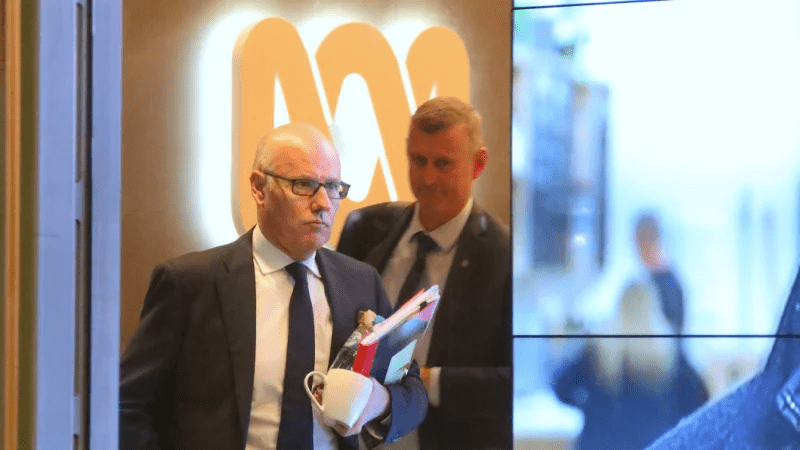The ABC's executive editor John Lyons being followed by an AFP officer during the June raids
(Photo: David Gray)
Freedom of press in Australia has been put in a precarious position after ABC lost the preliminary round against the Australian Federal Police (AFP) on August 19 over the recent raid of their Sydney headquarters which followed AFP’s raid of News Corp’s Surry Hills branch.
2 months before the infamous raid of ABC by the AFP, the AFP wrote a letter to the ABC’s Sydney headquarters requesting for the fingerprints of two journalists. These journalists had written a 2017 report known as The Afghan Files which reported on the activities of the Australian special forces’ soldiers in Afghanistan between 2009 and 2013. The letter stated that the journalists were suspects in relation to offences like but not limited to, s73A (2) of the Defence Act 1903 which concerns information obtained unlawfully.
In the recent hearing, ABC sought to amend its case by seeking to make further allegations against the AFP and the registrar who issued the search warrant. They alleged that the decision to issue the warrant was impacted by “jurisdictional error” as the parties did not consider issues like the importance of the invasion of privacy that the search warrant will cause and the significance of protecting the journalists’ sources and the public interest of protecting investigative journalism.
A Federal Court judge found these claims to be invalid by describing them as “speculative” and stating that the foundation of their claim, that no public policy concerns were considered, was solely based on the warrant itself and nothing else.
While these claims were rejected, the ABC’s case includes claims that the decision to obtain and issue a search warrant was legally unreasonable due to the public policy factors of privacy, necessity to safeguard sources and investigative journalism’s public interest aspect. These allegations remain unchanged by the judge’s decision.
The raids give rise to the issue of whistle-blowers and how likely they are to come to journalists with their information. With the crucial role they play in exposing malpractice, disincentivising them through such raids is against public interest. Hence the concerns surrounding the implied freedom of press in Australia stem from the likelihood of fewer sources coming to journalists with information and investigative journalists being less likely to report on concerning matters for fear of being criminalised.
Only time will tell the position of freedom of press and its boundaries in Australia with the continuation of the ABC hearings being the face of it.

